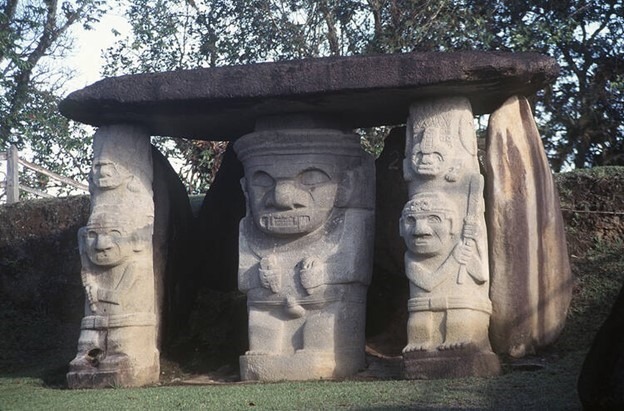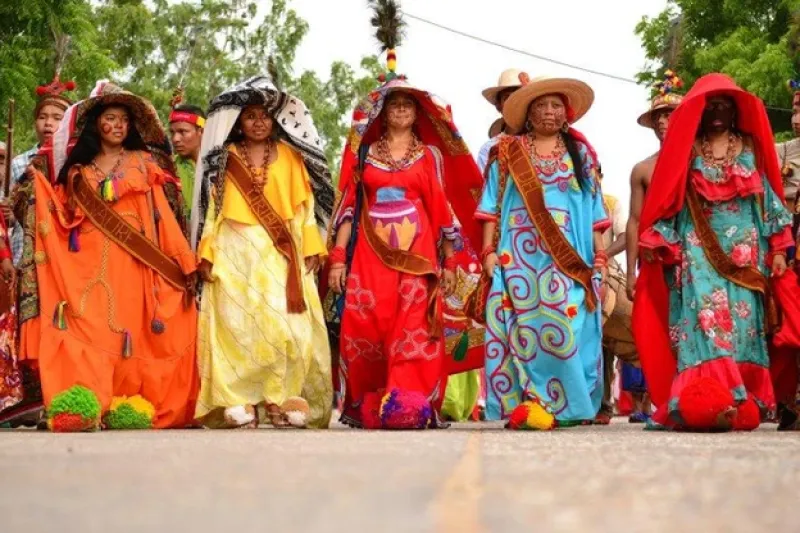November 15, 2021
“Jamaya Pu’lapuin?” (“How was your dream?”) are the first words with which the Wayuu greet each other daily. In contrast, when people from industrialized societies meet, they may say, “Hi”, “Hola”, “How are you?.” The greeting of ‘How are you?’ does not exist in the Wayuu language. An initial comparison of the greetings between these two groups of people may reveal the following: the Wayuu emphasize the primacy of the aa’in (soul) in life, which gets manifested in dreams, as well as the individual caring for the soul in another person’s life. Given the daily forgetfulness of the existence and subjective experience of the unconscious in the industrialized people, the word “You” in their greetings may be referring to the “Ego” and, less so to the integrated whole of the conscious and the unconscious. From a Jungian perspective, the Wayuu seem to be, initially, more interested in unconscious processes than “civilized people” are.
Therefore, Jungian analysts could learn, from the Wayuu aborigens, that the first question to be asked, when an analysand comes for the first time and to subsequent sessions to analysis, is “How was your dream?” (“Jamaya Pu’lapuin”). This is congruent with Jung’s writings and clinical practice where the centrality of dreams, as revealing the wisdom of the Self, was fundamental. There are exceptions, of course.
The Wayuu (“The People of the Sun, Sand, and Wind”) are an indigenous tribe that live in the desert of La Guajira Peninsula, which borders Colombia and Venezuela. They live in small settlements called “Rancherias,” which consists of five or six houses made of branches, corrals, and mud houses. Because their societal structure is matrilineal, each Rancheria is composed of people belonging to the same matrilineal clan. Some of these clans are, for example, the Aspushana (“Sour with Something”), the Epieyu (“Where Sleepiness is Felt”), the Jayaliyuu (“Eyes without Head”), etc. Furthermore, Wayuu children primarily bear their mother’s last name (and not the father’s), and each clan is identified with a symbolic drawing (“Kanaas”) that usually has a geometric shape that alludes to an animal, a plant, or a geographical place.
Therefore, the importance of images in Wayuu’s cosmology is comparable to the primacy of images in Analytical Psychology.
According to Paz (2017), Lapu refers to a deity that, through dreams, conveys messages to people. Dreams help the Wayuu to prognosticate many of outer events, such as death, health, adversities, etc. The Wayuu seek signals in dreams on how an adverse event can be prevented. At night, the aa’in (soul) of a Wayuu wanders, and such travel is aptly described in dreams. In recent decades, and within the field of Analytical Psychology, there is a greater tendency to see dreams as a comment, primarily, of the “analytical field” and, less so, of the intrapsychic life of the individual. The Wayuu perspective that dreams are helpful comments or warnings about outer events, such as a marriage, taking a trip, buying a house, taking a new job, moving to another city, etc, is becoming, unfortunately, less relevant to Analytical Psychologists because of the idea that “subjective interpretations” of dreams are emphasized more than “objective interpretations.” A close reading of Wayuu’s cosmology may help Analytical Psychology to have a more balanced view and hold the tension of the opposites of viewing dreams subjectively and objectively. Therefore, next time we want to relocate to another city, change jobs, have more children and, (why not?) getting together with a friend, etc., let us consult a dream about it, like the Wayuu do.
(more…)





